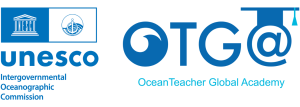
Ocean Primary Productivity
Learning outcomes
By the end of this course,
- You will know the basics of ocean primary productivity.
- You will be able to explain which processes are involved in primary productivity, how it is measured and why it is important.
- You will learn different methods of ocean observing including in situ and remote sensing and how these observations can be used.
- You will gain knowledge of the advantages of open data and know where to find ocean data through the Australian Ocean Data Network or other databases and how to access these datasets.
- You will gain experience on how to analyse and interpret the data with options given on coding languages to achieve this. The data laboratories are developed in Matlab and either in R or Python, or both.
Engagement
This is a self-paced online course.
Activities
The course consists of a mixture of material to read, video lectures, data laboratory using real datasets and computer coding.
Learning Resources
To facilitate the learning process, all the presentations are narrated and the textual transcript available. You can also download the presentation files and the videos. The laboratory section contains selected MATLAB, R and Python scripts that allows you to interact and analyse data from IMOS in your preferred analysis tool.
What you need
A computer, internet connection and basic knowledge of marine science and basic coding skills in R, Python or MATLAB. Mobile devices may not be suitable for these lectures.
